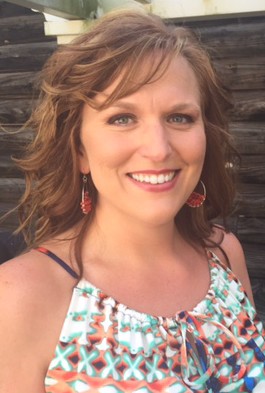My dear email friend asked me last night, “What would make you happy with God?” I suppose I could rattle off a long list, but the answer is simple.
When my girls were little, I stayed close by when they were playing or sleeping or eating. I was always there. And they knew it. If I wasn’t directly interacting with them, they knew they could call for me, and I was within hearing distance. Sometimes they wanted help, sometimes they wanted a playmate, and sometimes they just wanted to know I was present.
Now that they’re older, I’m not always with them. They spend their days at school and their evenings at extracurricular activities. They don’t need me quite as much. Yet they know if they do need me, all they have to do is call {or text}. I am always available. Sometimes in the evenings my youngest will ask me to come upstairs with her just so she knows she’s not alone.
There are times when I watch my children, and they don’t know I am present. Sometimes I watch and delight in them. Sometimes I’m present because I know they’ll need me {whether or not they know it}.
I am present for my children. I am always listening and observing and waiting to answer or help or just be with them.
I am well acquainted with the abandonment of earthly fathers, but I can’t understand a God who claims to be Father yet ignores his child’s pleas for help, for presence. I can’t understand a Father who sits idly by when his child is hurting and simply begging for the comfort of his presence.
I think of Jacob running from Esau, sleeping on a rock in desperation and loneliness. In a dream he saw angels ascending and descending a ladder with the Lord at the top of it. When he woke up, he proclaimed, “Surely the Lord is in this place, and I did not know it.” {Gen. 28:16}
I beg the answer to this question: What good is the Father’s presence if he doesn’t make himself available to his child?
If God is present, I don’t know it. I’m supposed to trust that he’s present simply because the Bible and all good Christians say so, but what good is trust when it’s shattered every time I call for help and the sound of crickets is the only reply. Surely God is with me, in me? All the evidence points to the contrary: surely God has abandoned me.
So I return to the initial question, “What would make you happy with God?” My answer is simply this: I want him to be a good Father–to show up, to comfort, to speak, to keep his promises, to accept me as I am. Surely that’s not too much to ask. Isn’t that what a good Father does?




You seem like an awesome mom.
Consider another question . Do you give your kids EVERY thing they ask for?
I think back on painful times in my past, when I just wanted an easy out , and I pleaded for God’s help and comfort, and I thank God that he did not rush to an immediate rescue. I grew through my trials. And I am thankful for that.
I wish I knew what to say, how to answer your questions or how to comfort you . All I can do is to hold on to the faith and hope that He does fulfill His promise to never leave. I know the times I have wondered if He left there was still a peace deep in my gut that He was watching over me. I pray that you feel He so close to you in these next few days.
Sorry I haven’t posted a comment in a few weeks–life’s been very crazy. I hope you had a wonderful Thanksgiving. This post pulses with emotion, much like the psalms of lament where the psalmists challenged God for his apparent silence (cf. Psalm 13). Many of these psalms make a tentative turn toward praise. One psalm in particular, accuses God, not only of abandonment, but as the active cause of his suffering and simply ends with a sense of hopelessness (Psalm 88). My observations here aren’t to offer a nice, neat settlement to such theological wrestling. It does remind me, however, that the Bible itself contains information that tends to challenge our simple certitudes about God. At the end of the day, I crawl back to the cross and, only there, do I get a glimpse of the essence of this God. While those moments don’t remove all my questions, they do tend to frame them differently. Again, Rebekah, thanks for your poetic voice.